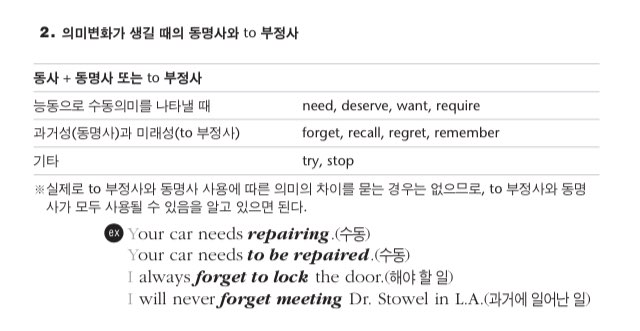■ Require. 2. 의미변화가 생길 때의 동명사와 to부정사 동사+동명사 또는 to부정사 능동으로 수동의미를 나타낼 때 need, deserve, want, require 과거성(동명사)과 미래성(to부정사) forget recall, regret, remember 기타 try, stop ※ 실제로 to부정사와 동명사 사에 다른 의미의 차이를 묻는 경우는 없으므로, to부정사와 동명사가 모두 사용될 수 있음을 알고 있으면 된다. e.g.) Your car need repairing. (수동) Your car needs to be repaired. (수동) I always forget to lock the door. (해야 할 일) I will never forget meeting Dr. Stowel..


